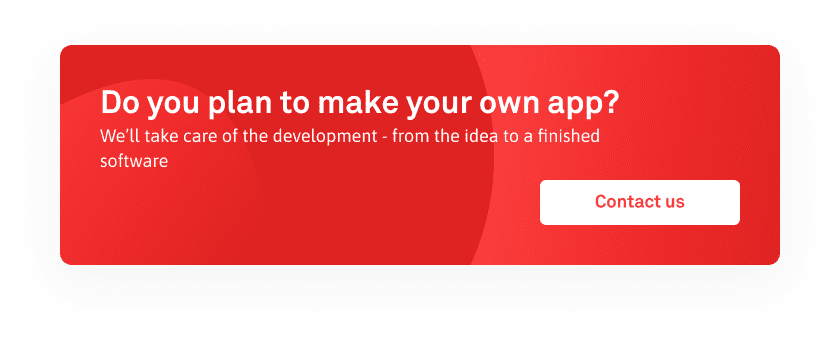As businesses grow, they’re exposed to a wide variety of software programs and other tools designed to improve the way their business operates daily. They come in many forms and are packed with unique features, but they don’t always work well with each other.
When you think about it, most businesses have upwards of a dozen different departments that work side-by-side throughout the day. While it makes sense to have a single software program that connects all the different departments under one roof, most businesses don’t go this route.
Instead, each department has its own software program and tools to get them through the day. Despite needing to communicate with each other constantly, the software remains separate from another and causes a wide range of frustration among employees.
That’s where ERP, also known as enterprise resource planning, saves businesses from a world of struggle.
So, what is ERP, and why does your business need it?
Enterprise resource planning is every business’ best friend. It’s hinged on the fact that each department relies on the same information, despite having different responsibilities and tasks throughout the day.
Most businesses have multiple software, each with a single capability that’s used by one or several departments. With ERP, you have a single software with multiple capabilities that’s used by all departments. It’s the ultimate environment for any employee.
What ERP does for you:
- Customer Service – businesses have a lot of customer information and data to secure. The easier this information is to find, the more accurate and efficient your customer service is.
- Accounting – maintaining your business’ financials, expenses, revenue, accounts receivables, and accounts payables is a daunting task, but ERP makes it easy and accessible.
- Goal-Tracking – with your entire team under one roof, tracking progress on goals throughout the month becomes much easier. You gain a lot when your team is on the same page, which is the main benefit of ERP.
- Inventory Management – whether you sell 100 items or 1 million items every month, it’s essential you manage your inventory with extreme precision and efficiency.
- Scheduling – even if you don’t sell products or goods, ERP helps you manage your schedule and ensures you stay on track with clients.
- Human Resources – managing inventory and schedules is one thing, but managing employees is another. ERP ensures your HR department has the tools required when doing their job properly.
- Sales & Distribution – ERP systems ensure your products are distributed to the right people at the right time. They assist your employees with everything from receiving orders, tracking orders, and fulfilling orders.
- Analytics & Intelligence – adding to the excitement, ERP systems use the latest in artificial intelligence to ensure you make better and smarter decisions in the future.
ERP systems do everything you ask of them. They’re more than just a piece of software; they’re the backbone that keeps your business operating properly. It takes the pressure off your team and allows them to do what they do best with minimal distraction.
Tips for Building an ERP
Enterprise resource planning is still a new concept to most large businesses. In fact, the term is starting to make its way into mid-sized markets as businesses are asked to do more in less time. It seems like every business today can find a use for enterprise resource planning.
Let’s take a look at some of our most prominent tips to consider when developing your own ERP system:
- Don’t feel pressured to include every business process in the ERP system immediately. Instead, roll out one department or one function at a time to ensure it’s completed properly.
- Interview your employees to get a sense of what they are looking for in an ERP system. After all, they’re the ones that are using it everyday.
- To ensure your ERP system’s success, it’s essential you find the right ERP developer to work alongside. They know the best practices and offer a unique sense of creativity to the system.
- When building an ERP system, consider what your business might need in the future. Preparing for this now makes it easier on your team when you cross that road later.
- Before you implement the ERP system in your business full-time, make sure your employees are properly trained and have experience using it.
When developed properly, an ERP system improves the way your business operates on a daily basis. Not only that, but it continues to improve over time and grows as your business grows. It shows your employees that you care about accuracy, you’re invested in efficiency, and willing to provide them with the tools needed.
Does ERP Improve Customer Satisfaction?
One of the biggest misconceptions with enterprise resource planning is that it does nothing for the customer. Since the customer does not use it, most people don’t expect it to impact them at all.
Despite the fact it’s only used by employees, the right ERP system goes a long way in providing a valuable, memorable, and quality customer experience. It’s not a direct impact, but your employees’ improved accuracy and efficiency don’t go unnoticed by the customer.
In addition to customer satisfaction, ERP systems unify IT costs across each department, improve accessibility across the board, and provide valuable insight to further your future improvements.
Do You Need an ERP Developer?
There is a wide range of ERP systems available on the market today, but they don’t provide the customization and personalization needed from an ERP system. With that being said, hiring an ERP developer is highly recommended when you have the budget for it.
Of course, you must find the right developer to ensure your project is successful. Let’s take a look at some tips to consider when hiring the right developer:
- Always ask for samples of the developer’s past work to ensure they meet your standards. Use customer reviews, testimonials, and interviews with their past clients to get a valuable perspective on what it’s like working with the developer.
- Don’t hire an ERP developer until you’re confident they understand what you need from an ERP system. Each system is unique, and they require a unique approach to them.
- Ask your potential developer whether or not they have any suggestions, recommendations, or ways to improve your idea for an ERP system.
- Make sure your developer is prepared to stick around past the development process. They’re valuable when training employees and when maintaining or updating the ERP system.
If you’re looking for a quality and passionate team of ERP developers, you’ve come to the right place. CodeBright builds ERP systems for a variety of businesses in different industries. We are thrilled to extend our services to you and your employees wherever you’re ready to start the process.
Contact us today to learn more about how an ERP system can benefit your business and improve the way you operate daily!



